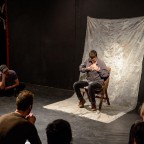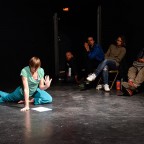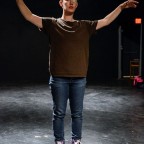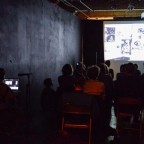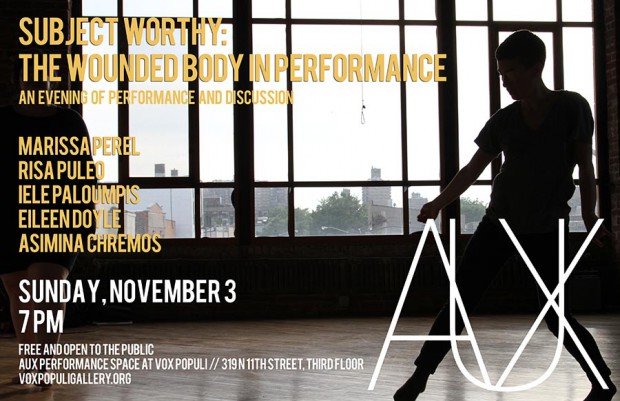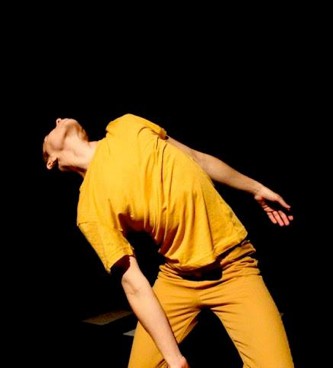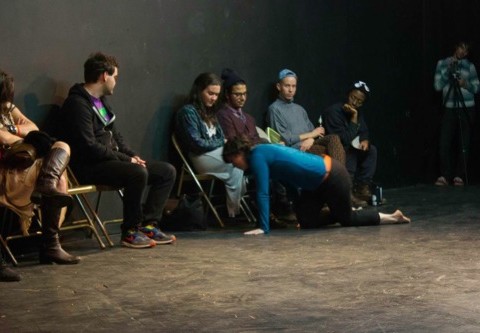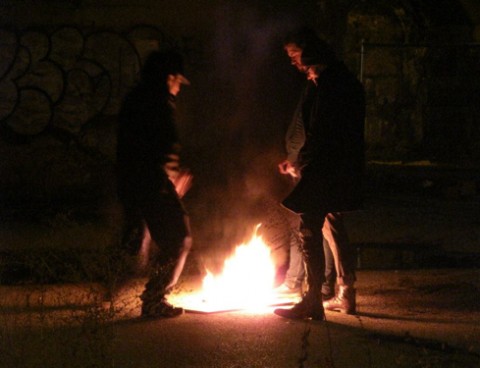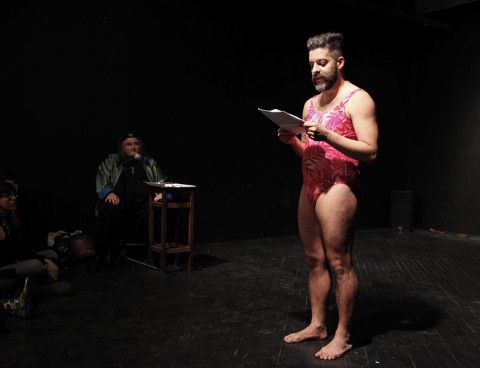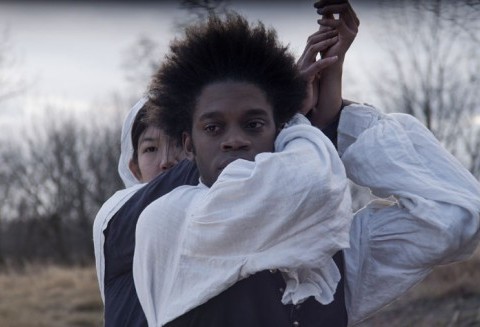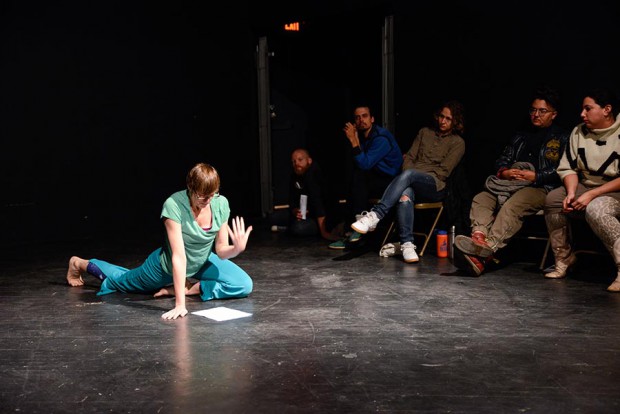
Program
AUX Curatorial Fellow, Marissa Perel presented an evening of performances and talks, the first in a series of public education and lecture events entitled Subject Worthy. Perel lectured on pain, embodiment and resistance across the forms of performance art, body art and dance, as areas of her artistic research. She was joined by curator Risa Puleo, dance artists iele paloumpis and Asimina Chremos, and interdisciplinary artist Eileen Doyle who participated in an informal evening of performance and discussion. The Subject Worthy talk series explores the subjectivity of the artist in live performance, addressing identity and difference as these issues come to bear on the values, desires and aesthetic concerns in the making of performance.
Download Text and Essays Curated by Marissa Perel for Subject Worthy and Counter/Acts 2013
Artists
Asimina Chremos, Eileen Doyle, iele paloumpis, Risa Puleo
Video Documentation
Photo Gallery
Poster Art
Bios
Asimina Chremos (born 1966) is a Philadelphia based dance improviser who also creates works of freeform crochet. Her influences and training include ballet, various styles of modern/contemporary dance, yoga, Continuum, and contact improvisation. She has recently been studying Aikido as well. In her solo and collaborative works she is currently engaged in an exploration of form and pattern in space, continuity, ongoingness, and recursiveness. Her dance practice evidences early years of training in ballet technique, followed by studies and practice in modern and postmodern dance with teachers such as Simone Forti and Ishmael Houston-Jones. Chremos began her professional dance career in 1983 as a member of the Pittsburgh Ballet Theatre. In 1991 Chremos graduated, summa cum laude, with a BFA in Dance from Temple University. She has collaborated, performed and toured in and around Philadelphia, Chicago, and Seattle as a soloist and with improvising musicians such as Carol Genetti, Fred Lonberg-Holm (both Chicago), as well as Bonnie Jones and Andy Hayleck (both Baltimore), among others. Chremos’ choreographic explorations have been supported by the Pennsylvania Council on the Arts (1995); the Chicago Dancemakers Forum Lab Artist Grant (2005); the Crosscut Program, a partnership of the Experimental Sound Studioand Links Hall in Chicago (2008); and the Project Space Available Residency in Seattle (2010). Chremos has also practiced crochet and crafts since childhood. Her fiber art is based on traditional techniques of doily crochet, which she develops into colorful, bimorphic expressions. An exhibition of nine of her recent pieces will open November 7, 2013 at stadler-Khan boutique in Philadelphia.
Eileen Doyle is an interdisciplinary artist and independent curator. She was the founder and curator of theGarbage World Performance Series, under the moniker Gertie Garbage. Garbage World has thrived in multiple venues in both Chicago and Philadelphia, where Doyle is a member of the little berlin gallery collective. She is currently investigating her own anxieties about mortality through performance and installation. She holds a BFA from the School of the Art Institute of Chicago.
iele paloumpis is a trans/queer dance artist, choreographer and teacher. At the center of their practice are ideas exploring body politics and artistic self empowerment. Joanna Groom (in collaboration with iele paloumpis) is a lifelong singer and music zealot. A self-described choir geek, Joanna has toured Europe and performed at Carnegie Hall with the New Jersey Children’s Choir. She became a vocalist and frequent soloist for the Noteables at Smith College and writes and records her own music.
Risa Puleo is a curator and occasionally an art historian. Most recently her research has led her to consider multiple aspects and valences of physical and emotional pain, as it relates to a spectrum of topics including Catholicism, BDSM, disability, illness, trauma, monstrosity and perversion, healing and recovery, breakdowns and breakthroughs. Inquiries into these areas has led to study of the objects and images of Counter-Reformation Europe, The Spanish Inquisition and Colonization of Latin America, as well as the Vietnam War and the AIDS Crisis. Other topics that frequently come up in her work are: Americanness, landscape, performativity, theatricality and spectacle, all under the rubric of queer-feminism.


